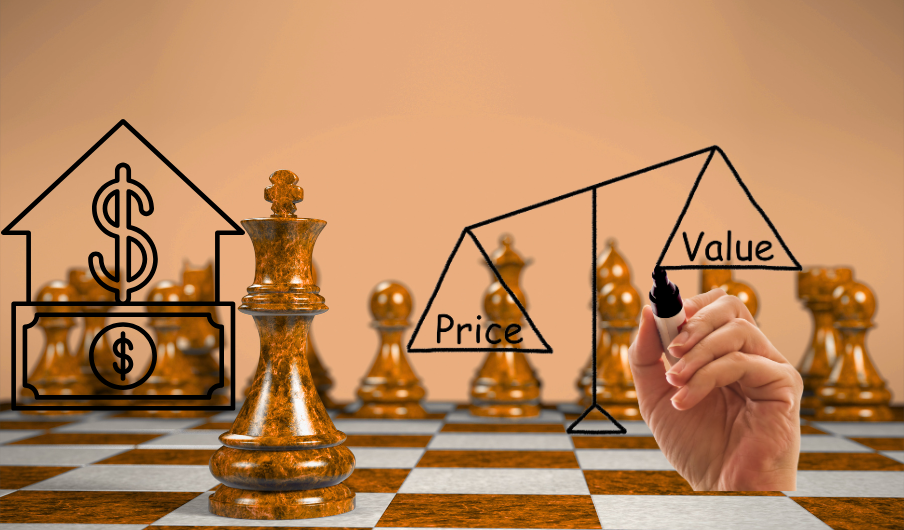
What To Expect From A Home Valuation
When you’re selling your home, one of the first big questions is: What’s it worth? A home valuation is more than just a number—it’s the foundation for setting a competitive asking price, attracting the right buyers, and maximizing your sale. In this installment of our Smart Sellers Guide series, we’ll break down the three key components of a home valuation: comparative market analyses (CMAs), professional appraisals, and pricing strategies that work in today’s market.
Comparative Market Analysis (CMA)
A CMA is a detailed report prepared by your real estate agent that compares your property to similar homes recently sold in your area.
A strong CMA looks at:
- Location & Neighborhood Trends – Comparable homes should be in the same or similar neighborhoods to reflect local demand.
- Size & Features – Square footage, lot size, number of bedrooms/bathrooms, and special features (views, upgrades, etc.).
- Condition – Well-maintained, updated homes typically command higher prices than those needing repairs.
- Recent Sales & Market Activity – Homes sold in the past 3–6 months are most relevant, but current listings and pending sales also give insight.

Why it matters:
A CMA provides a realistic snapshot of what buyers are willing to pay for homes like yours today. It’s a critical first step in setting an asking price that attracts attention without undervaluing your property. While online estimates can give you a ballpark figure, a CMA takes into account local nuances that algorithms often miss.
Appraisals
An appraisal is an independent, professional opinion of value conducted by a licensed appraiser — usually ordered by the buyer’s lender to ensure the home is worth the purchase price.
Key differences from a CMA:
- Neutral Third Party: Appraisers don’t work for the buyer or seller — they work for the lender.
- Stricter Criteria: They follow set guidelines and may weigh certain factors differently than an agent’s CMA.
- Influence on the Sale: If the appraisal comes in lower than the agreed purchase price, the buyer’s financing could be affected, potentially requiring price negotiations.
Why it matters:
Even if you set the “perfect” price, a low appraisal can derail the sale. Knowing how appraisers work helps you prepare — small upgrades, repairs, and providing your agent’s CMA for context can sometimes make a difference.
Pricing Strategies
Once you understand your home’s value from both the CMA and potential appraisal, the next step is choosing a pricing strategy.
Common approaches include:
- Market Value Pricing – Listing right at the estimated market value to attract qualified buyers without underpricing.
- Strategic Underpricing – Listing slightly below market value to spark interest and create a bidding war (works best in hot markets).
- Aspirational Pricing – Listing above market value with the idea of negotiating down (risk: longer days on market and price reductions).
Why it matters:
Your pricing strategy should reflect both market conditions and your personal priorities — whether that’s selling quickly, maximizing profit, or testing the market. The right strategy can generate strong buyer interest and set the tone for a smooth transaction.
What This Means for Sellers
Understanding how home valuations work is one of the smartest moves you can make before listing. Whether it’s through a CMA, an appraisal, or strategic pricing, knowing your home’s true market value sets you up for success. By taking the time to prepare and price your home effectively, you’ll attract serious buyers, minimize time on the market, and maximize your return.
This is just one piece of the process covered in our Smart Sellers Guide—stay tuned for more insights to help you sell with confidence.
📅 Ready to Sell? Let’s Find the Right Time for You
Whether you’re planning months ahead or considering a quick move, we’ll help you choose the best strategy based on your goals and local market trends. Not sure or have questions? How about a free consultation? You can call, text, email, or schedule a time that works for you by clicking the button below.
Whether you’re thinking months ahead or considering a quicker move, we’ll help you choose the right strategy based on your goals and the current market.
Not quite sure where to start or just have questions? Let’s talk! Schedule a free, no-pressure consultation by clicking the button below—or feel free to call, text, or email anytime.

Curious about your Home Value?
Use our free Instant Home Value tool to get a quick automated estimate on your home’s value
*This is a fantastic tool to get a quick “courtyard” value of your home, but is not intended to replace a current market analysis (CMA) performed by a professional. If you’d like a more precise valuation of your home, just fill out the form below



